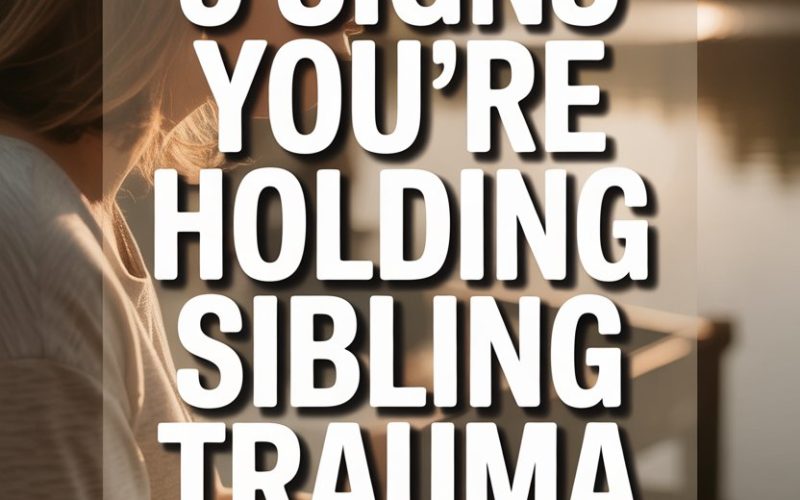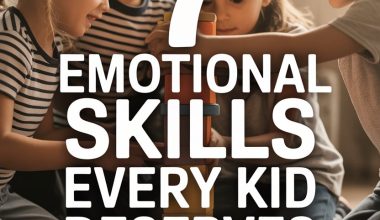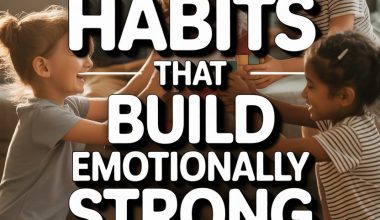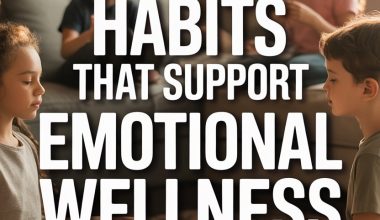Sibling relationships are supposed to be a bit of a rollercoaster. There are the sweet inside jokes, the epic battles over who touched whose stuff, and the lifelong rivalry over the last slice of pizza.
But when those childhood skirmishes leave deeper marks, you might find yourself trudging through adulthood with a backpack full of unresolved sibling trauma.
Sound familiar? You’re not alone.
Plenty of parents juggle work, school drop-offs, and mysterious sticky kitchen counters—while quietly wondering why their siblings’ texts set their teeth on edge.
Here are five unmistakable signs you’re still carrying the weight of sibling trauma, plus gentle, practical nudges to help lighten the load.
1. You Relive the Old Battles (and Still Lose Sleep Over Them)
Ever find yourself lying in bed, replaying the time your brother “accidentally” trashed your favourite toy, or your sister weaponised the silent treatment for an entire summer?
If these memories surface with the vividness of a 4K replay—and bring a fresh sting every time—there’s a good chance those wounds haven’t fully healed.
This isn’t just nostalgia gone rogue.
According to experts in family psychology, unresolved sibling trauma often shows up in the form of rumination, replaying old hurts and wishing for a different outcome.
It’s like your brain is stuck in Groundhog Day, but with more eye-rolling and slammed doors.
What can you do? When these memories pop up, try this: Instead of pushing them away (or plotting elaborate payback in your head), pause and label the feeling. “That really hurt.” “I felt invisible.”
Giving words to those old emotions is the first step to moving past them.
Jotting a quick note on your phone or in a journal helps too. Call it the “sibling grudge log”—no one else needs to see it, but getting it out of your head can make it less powerful.
2. You Parent Like the Sibling Police
If you catch yourself monitoring your own children’s squabbles with the intensity of a United Nations peacekeeper—tuning your ears to every slight, refereeing every spat—there might be more at play than just wanting a quiet evening.
Some parents, scarred by their own sibling wars, go full-on referee mode, desperate to shield their kids from similar pain.
While it’s natural to want harmony, studies suggest that occasional sibling conflict is not only normal but healthy. It helps kids learn to negotiate, apologise, and forgive (eventually).
If you’re stepping in because your own childhood arguments still feel raw, acknowledge it to yourself. Are you reacting to your kids, or to your own past? Next time, count to ten before intervening.
If the fight is about whose turn it is to choose the telly show—not a live re-enactment of gladiatorial combat—try letting them sort it out. You might be surprised at how quickly they bounce back.
For truly tricky moments, a calm, “I hear both of you are upset. What do you think would be a fair solution?” teaches problem-solving—without you reliving old wounds.
3. You Freeze Up Around Your Sibling (or Avoid Them Entirely)
Family BBQ coming up? If you’re plotting an escape route, or prepping for hours beforehand like you’re about to take the SATs, it’s a flashing neon sign.
Those nervous feelings around your sibling might mean some wounds are still raw. Whether it’s anxiety, resentment, or just plain dread, adult relationships don’t magically reset at age 21.
According to therapists who specialize in family dynamics, avoidance or emotional numbness are classic signs that childhood hurts are still running the show.
If this sounds familiar, try this: Before the next family gathering, check in with yourself. Are you nervous about what happened years ago, or about what might happen today?
Jot down three things you’d like from the relationship now—maybe it’s less tension, more respect, or simply a civil conversation. Focusing on the present helps take control back from the past.
If face-to-face feels impossible, consider sending a short message—just a “thinking of you” or sharing a funny memory. Sometimes a tiny step can thaw a frozen connection.
4. Your Adult Relationships Echo Your Old Rivalries
Ever notice yourself clamming up with colleagues who remind you of your bossy older sister? Or maybe you find yourself competing endlessly with friends, as if the “Who Gets the Last Word” game never ended.
Sibling trauma often leaves its fingerprints all over adult life.
According to research on family-of-origin wounds, those early patterns—fighting for attention, shrinking to keep the peace, or trying to outshine a rival—can show up in work, romance, and friendship.
The trick is to spot the pattern without beating yourself up.
Next time you notice yourself reacting strongly to someone, pause and ask: “Does this remind me of someone from my childhood?” If the answer is yes, you’re halfway to breaking the spell.
Practising a bit of self-compassion goes a long way here. Acknowledge those old survival skills—they were useful once!—and gently remind yourself that you’re not a kid at the dinner table anymore.
If you catch yourself in a rivalry rut, keep things playful: “Oh look, my inner nine-year-old is trying to win again. How quaint.”
5. You Struggle to Forgive or Let Go
Holding onto old grudges is a classic move—who among us hasn’t imagined turning down a sibling’s friend request just to make a point?
Yet, when decades have passed and you’re still unable to let go, it can weigh you down more than you realise.
Grudges act like emotional anchors.
According to research on forgiveness, hanging onto resentment is linked to higher stress, anxiety, and even physical symptoms. Not exactly the souvenirs you want from childhood.
Forgiveness doesn’t mean excusing bad behaviour or pretending it didn’t happen. It’s about loosening your grip on the pain, for your own peace of mind.
If forgiving your sibling outright feels impossible, start by forgiving yourself for still being hurt. That alone can be a huge relief.
Consider writing a letter you never send, or telling a trusted friend what you wish you could say. Sometimes, just voicing the old hurt is the first step to releasing it.
Bringing Healing into Your Home
Spotting these signs in yourself isn’t about tallying up another parental failing (as if you needed more of those). It’s an invitation—a gentle nudge—to pay attention to your own story, so you can write a better one for your family.
If you’re seeing echoes of your childhood in your reactions, give yourself some grace. Healing doesn’t happen overnight, and you don’t have to do it alone.
Consider chatting with a counsellor, reading up on how to heal sibling trauma, or simply sharing a laugh with someone who gets it.
Every time you pause before intervening in a squabble, or choose kindness over rivalry, you’re not just healing yourself—you’re modelling resilience for your kids. And that’s a legacy more powerful than any vintage grudge.
Who knows? Your next family gathering could even involve an actual conversation… instead of a cold war over the potato salad. Stranger things have happened!




